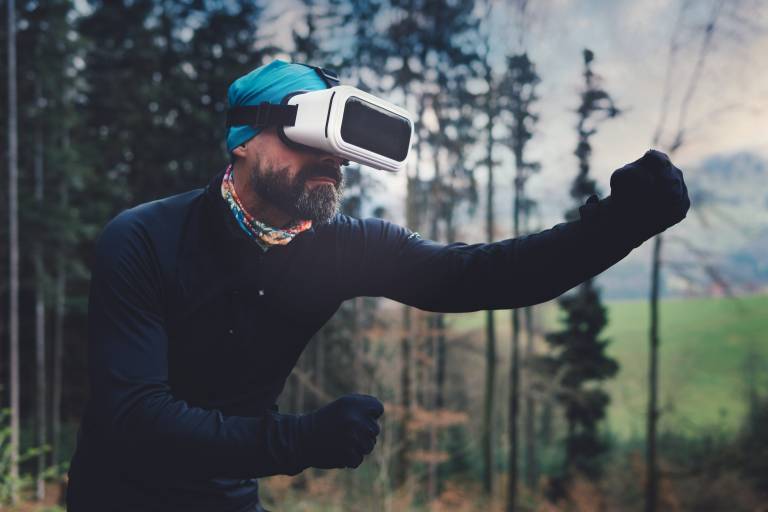New study will look at how virtual reality can help diagnose dementia
22 March 2022
Dr Dennis Chan (Institute of Cognitive Neuroscience) is leading a study investigating how virtual reality (VR) could help improve the diagnosis of early Alzheimer’s disease.

Alzheimer’s disease is the most common cause of dementia in the UK and the symptoms develop gradually over many years. Currently there is no single test that can be used to diagnose the disease.
Dr Chan and Luke Emrich-Mills (Division of Biosciences) will examine a part of the brain located in the temporal lobe called the entorhinal cortex, which shows early damage in Alzheimer’s. They hope the results of the study will make it easier to detect the disease in its earliest stages.
The study will investigate how well the VR task detects early Alzheimer’s disease when compared to traditional ‘pen and paper’ tests of memory and thinking. Participants will complete a memory task wearing a VR headset, with the researchers looking at how well they perform and also examining participants’ eye movements when tracking objects.
Dr Chan said:
“Our hope is that these novel VR tests can help us diagnose better early Alzheimer’s disease. Earlier diagnosis would then allow earlier use of treatments which may in the future delay the progression to dementia. For participants, it offers an opportunity to get involved in something a little bit different, and to play a part in testing a potentially more effective diagnosis tool.”
Related
Image from mali maeder on Pexels.
 Close
Close

